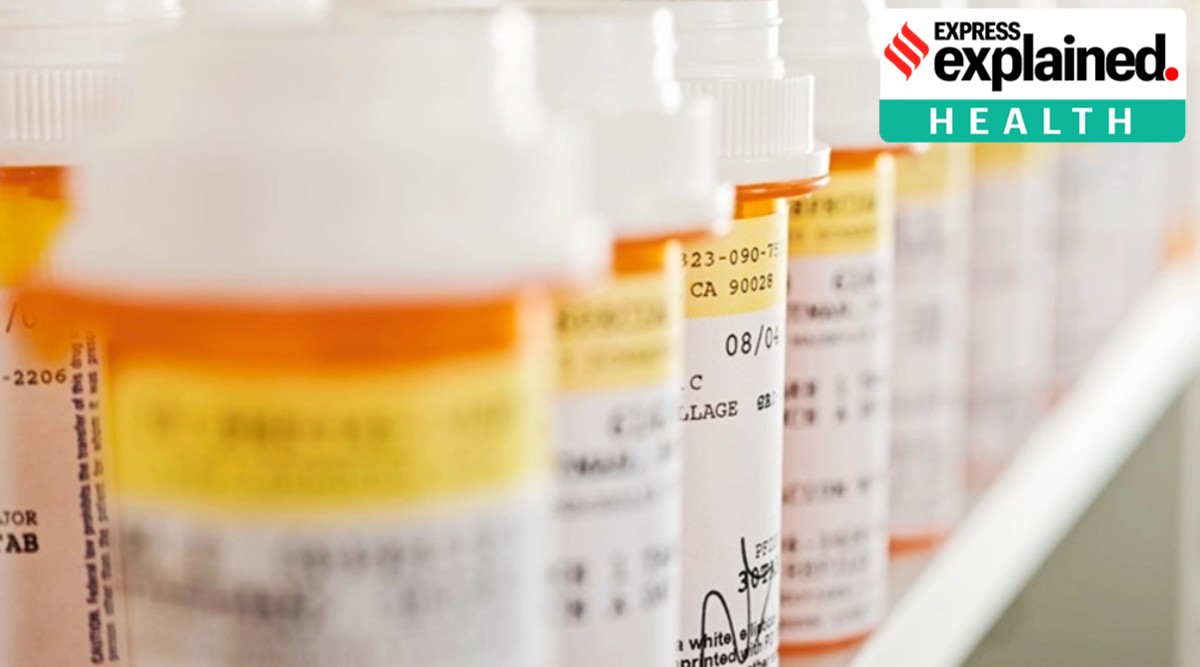From two Tokyo Olympians being banned to Noida Police seizing fake drugs and supplements worth Rs 2 crore, anabolic steroids have often been in news, although not for the right reasons.
More than being a drug prescribed by doctors, anabolic steroids are usually used by bodybuilders. We take a look at what anabolic steroids are, why they are used, and how they are different from the ones prescribed by doctors.

What are anabolic steroids?
Anabolic steroids are essentially lab-made versions of the male hormone testosterone and have a similar effect of increasing muscle mass as the natural hormone does. It also increases male characteristics in a person, such as facial hair and a deeper voice.
These are, however, very different from the steroids that are prescribed by doctors for inflammations, several autoimmune diseases, or to suppress the body’s immune system during a Covid-19 infection. These medicines are called corticosteroids and are lab-made molecules that mimic the action of the hormone called cortisol that controls the body’s stress response, metabolism, and inflammation.
Unlike corticosteroids, anabolic steroids have limited medical use. “Anabolic steroids are mainly misused by athletes and sportspersons nowadays. Years ago, it was rampantly used by bodybuilders and was given to them in pudiyas. Although this practice is fading away, people still take it following the advice of their gym trainers. We keep telling them not to take any unknown supplement as it might have anabolic steroids,” Dr Yash Gulati, an orthopaedic surgeon at Apollo hospitals, said.
What are they prescribed for?
The anabolic steroids have a very limited medical role and are mainly used by doctors to help patients gain weight after a severe illness or injury. It could also be prescribed in small doses to the elderly to build muscle mass and in some cases also helps to treat anaemia.
Doctors may also prescribe the medicine to men who have low levels of natural testosterone. “Some doctors use it for the treatment of osteoarthritis (a condition where bones wear down over time), but I personally do not. I think it should not be prescribed unless there is a deficiency,” Dr Gulati added. “This is because a misuse can cause damage to the heart and kidneys, and lead to anger issues.”
How are anabolic steroids misused?
Story continues below this ad
The anabolic steroids are misused mainly by those who want to bulk up as it helps increase one’s muscle mass. A 2019 study from Bhubaneshwar of anabolic steroid users showed that only one of the 74 participants was a professional bodybuilder, with 18.9 per cent being students, indicating that it is used by people other than professional athletes.
Although no concrete estimate exists of the number of people using the drug across India, a 2018 study from Jammu and Kashmir found that 7.1 per cent of athletes used it.
What are the health impacts?
Use of anabolic steroids in the short-term can cause acne and hairfall. Extended misuse of the substance can also lead to gynaecomastia (growth of breasts in men) and erectile dysfunction.
In women, it can lead to growth of facial hair. It may also cause extreme anger, paranoia, and impaired judgement.
Story continues below this ad
Long-term use can lead to kidney disease and even failure, liver damage and tumours, enlarged heart, and high blood pressure. It can also lead to stunted growth in teenagers.








































